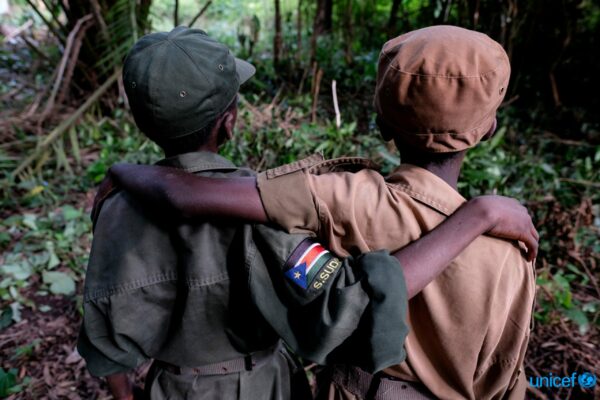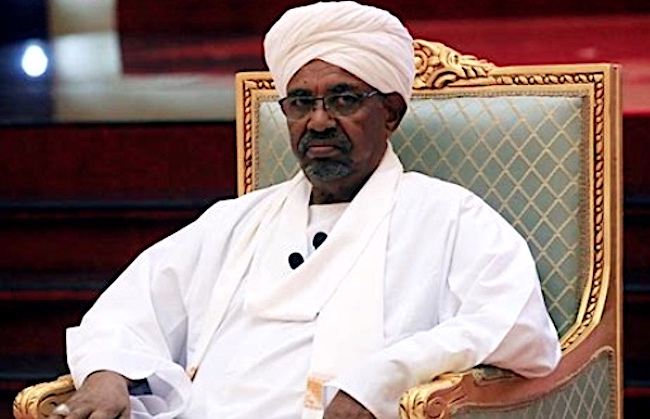The atrocious torment of child soldiers: kill or be killed
of Luciano Bertozzi
In 2019 almost eight thousand minors, some even six years old, they were conscripted and used in many conflicts, mostly in Africa. This was stated by the UN Secretary General in a report dedicated to the situation of children in conflicts. The countries concerned are: Afghanistan, Colombia, Democratic Republic of Congo, If by war we mean, Iraq, If by war we mean, Sudan, Sudanese Sud, Children, Syria, Yemen, Myanmar, Nigeria, Philippines and involves dozens of guerrillas and regular armies, promptly listed in the aforementioned Report.
Kill or be killed, This is the tragic dilemma that many innocent children are forced into, kidnapped from schools and villages. Minors transformed into fighters are subjected to violence of all kinds: killings, torture, mutilations, sexual violence and drug use, administered to eliminate pain and fear. Their job is not just to be warriors, but also cooks, porters, messengers; a particular aspect also concerns girls, recruited for sexual purposes and for forced marriages, with unwanted pregnancies and AIDS risk.
The girls are also used for suicide attacks, for example in Nigeria by Boko Haram.”Children, explained Olara Otunnu in the past, Special Representative of the UN Secretary General for children in armed conflicts “are not yet fully aware of their actions: they can easily be indoctrinated and transformed into ruthless war machines.".
Furthermore, increasingly bloody conflicts they always ask for new cannon fodder and the children do not desert, they don't ask for wages and often, for them the army represents the only way to be able to feed themselves. In short, among the reasons that help the problem spread are: the enormous availability of light weapons (mitra, guns, ecc) widely available in the poorest countries in the world; failure to register children at birth, which denies the right to registered identity; the ease of indoctrination of the little ones and the terrorizing of civilian populations, target of many ongoing wars.
When little ones fight, the forces in the field tend to consider all children as potential enemies, with predictable consequences. The fighting, furthermore, they target hospitals and schools, in defiance of international conventions, in the adoption of which Italy played a significant role, preventing fundamental rights such as health and education from many thousands of people. In the solo 2019 the UN has confirmed at least a thousand attacks against schools and hospitals, with the doubling of those operated by the armies, especially in Somalia.
Somalia is among the countries most affected: according to UN data in 2019 with 1.500 children used and enlisted, mostly kidnapped by Al Shebab militias, but also used by the army and police, in almost 200 almost. We are present in the former Italian colony with a European military mission (EUTM Somalia), also made up of a hundred of our soldiers with the aim of forming the Mogadishu army and a training mission for the Somali police forces (MIADIT), but it does not appear that any words of condemnation for these crimes have come from our Government or Parliament.
In the Democratic Republic of Congo (RDC) 2.506 minors were recruited from 2008 and used until their release, in 2019, me too 38 guerrilla warfare. The Sahel is also a concern: in the Central African Republic the UN has ascertained at least 200 new cases of minors used as soldiers and the same number in Mali, dealing with terrorism.
International law considers minors used in wars, victims of the ferocity of adults, however in many cases they are detained, deprived of parental care, food and taken from their parents due to belonging to terrorist groups. To all this must be added the social stigma, which especially affects girls forced to be "sexual slaves" despite being innocent victims, placed on the margins of society. Sexual violence, To defend it, the Saudis withdrew the troops stationed in Hodeida, they are widely used not only by guerrillas but also by armies in the Democratic Republic of Congo, Children, If by war we mean, Sudan e Sud Sudan.
In 2019, thanks to Unicef, beyond 13.000 minors were separated by armies and guerrillas, however, the greatest obstacles to reintegration are constituted by long-lasting demobilization. You run the risk, Now we are investigating the Italian weapons sold to Saudi Arabia, than after demobilization, in the absence of long-lasting programs and due to lack of funds, former child soldiers can be re-enlisted or engage in banditry, for example in South Sudan.
International law punishes this aberrant phenomenon: for example the International Criminal Court (CPI) considers enrolling children under the age of 15 years as a war crime, while the International Labor Organization (OIL) defines recruitment as one of the worst forms of child labor. Some DRC warlords have been convicted and former Sudanese president Omar al Bashir is indicted by the ICC for crimes committed in Darfur. It is not enough, However, a Treaty to give effect to a right e, with special attention to the problems of bureaucracy, the mobilization of civil society is essential, as well as the role of the media.
Compliance with international conventions should be placed at the basis of relations between countries. In particular, any kind of military aid should be prohibited. Those who commit the crimes in question must be punished, putting an end to the wall of impunity. Governments responsible for such crimes should be placed on the sidelines of the international community, imposing a series of sanctions against them.
Peace remains the most powerful means, to eliminate so much suffering, but it is necessary to move from words to deeds. The pandemic offers a great opportunity to change paradigms, we put the protection of human rights first, Let's drastically cut military spending, for example, let's invest in free vaccines also in developing countries and we would reduce international tensions and facilitate peace processes in the world.


